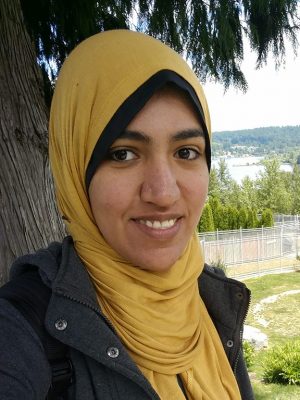
Heba Aly
University of Maryland at College Park
PhD Candidate
Heba Aly is a final year PhD candidate in the computer science department at the University of Maryland College Park. Her research interests include spatial systems, mobile/wireless computing, applied machine-learning and crowdsourcing. Heba’s work has been published in multiple peer-reviewed conferences and journals. She filed a number of patents and has a granted one. Additionally, her work has been recognized by multiple awards including the ACM SIGSPATIAL 2018 best paper runner-up, best poster from N2Women at ACM MobiCom 2016, first Prize in the 2014/2015 COMESA Innovation Awards, and best paper award at ACM SIGSPATIAL 2013. For her early achievements, Heba was recognized as a rising star in Networking and Communications by the N2Women in 2017, received a Women Techmakers scholarship from Google in 2017, received a Dean’s fellowship from the University of Maryland in 2016 and 2015, and was awarded a certificate of appreciation from Umm Al-Qura University in 2014, among others.
Research Abstract
Smartphones and wearable devices are attractive tools for learning more about individuals carrying them and their environment. This is due to their ubiquitous presence along with their rapidly growing list of embedded sensors. My research focuses on leveraging recent AI advances and spatiotemporal multimodal sensor information, from mobile devices, to build intelligent systems that aim to solve real-world problems. For example, we presented a passive crowdsourcing system that automatically constructs accessibility digital maps where spaces are marked with their accessibility-state for the different disability types, such as vision and mobility impairments. These maps are imperative for disabled individuals’ well-being. My work also addresses different challenges for realizing passive crowdsourcing systems. This includes estimating accurate indoor/outdoor location tags for the mobile devices and developing methods to estimate the value of the crowdsourced spatiotemporal data.